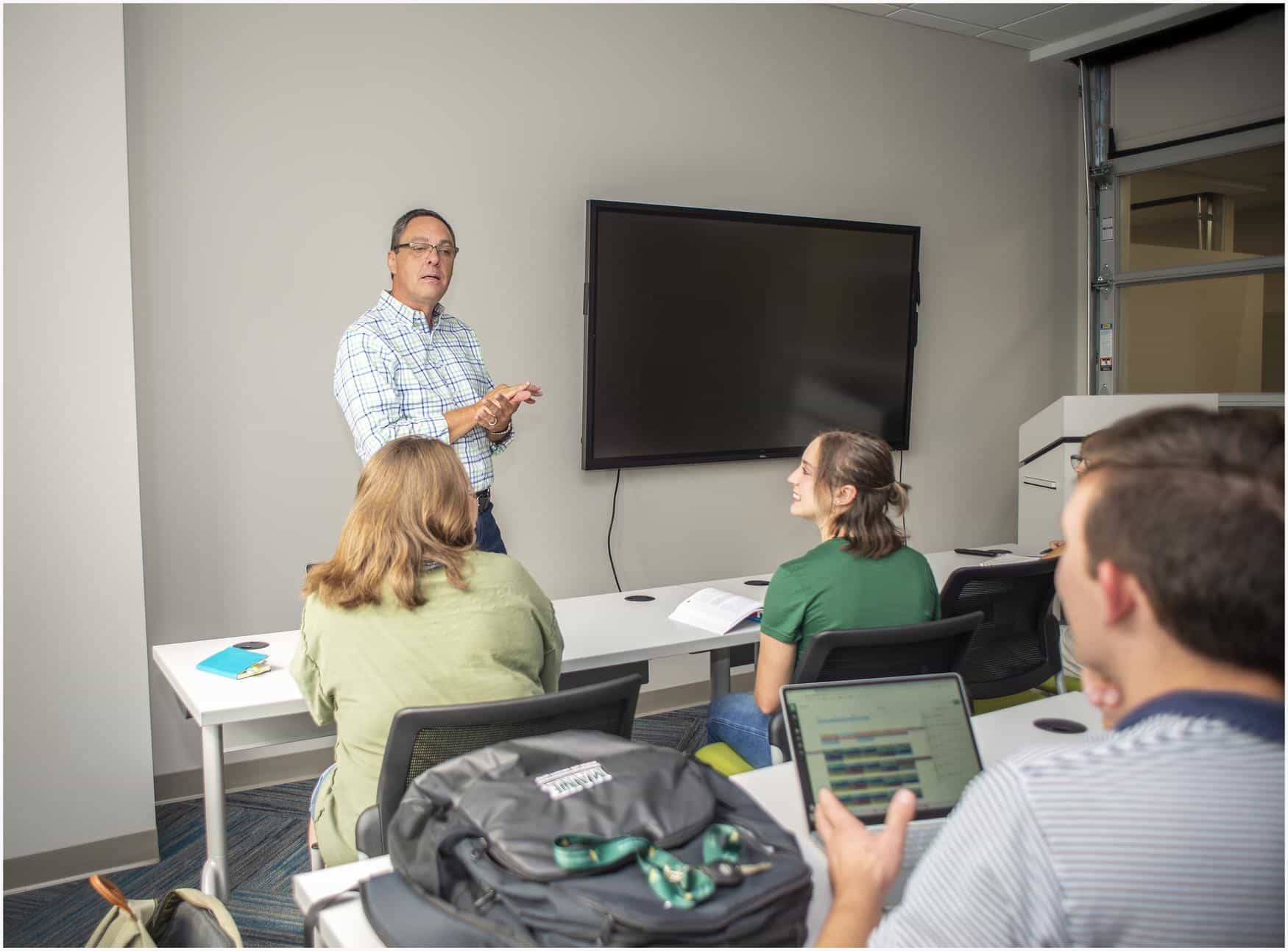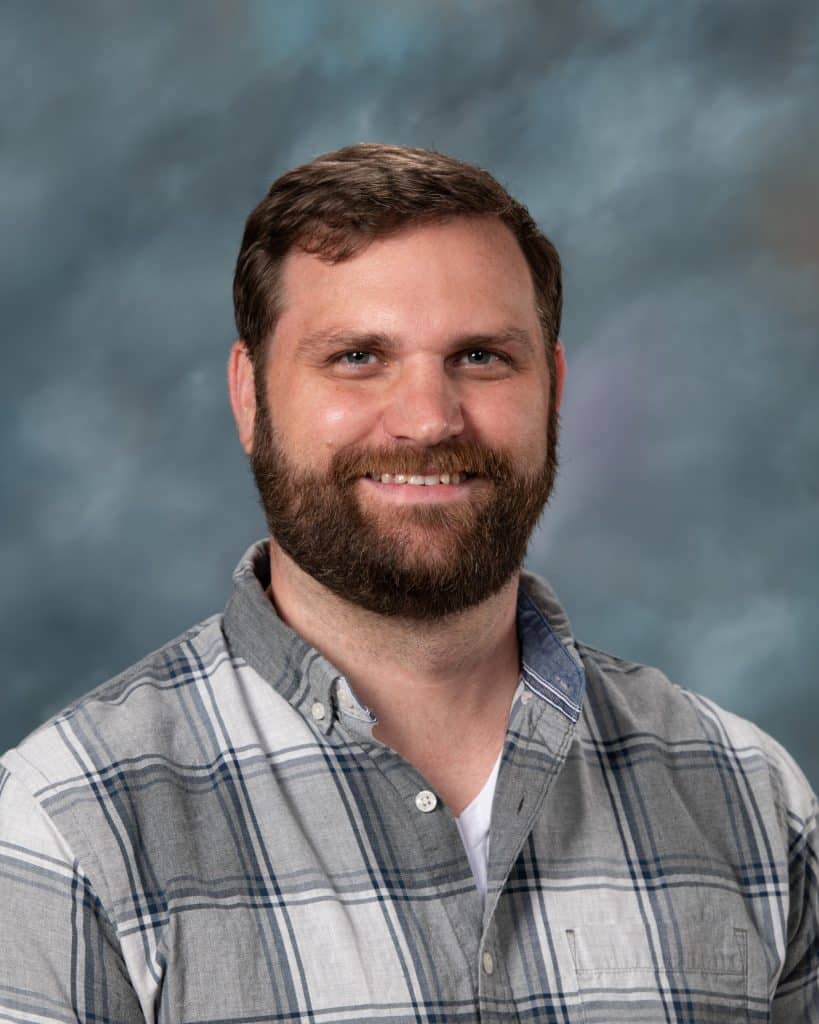Physics-Applied


Why Pursue Applied Physics?
Physics is the building block on which almost all other sciences are built, and those who master physics will quite likely find themselves at the center of important work. For instance, physicists invented and played key roles in the development of radar, sonar, global positioning satellite systems, and night vision for the military; X-rays, CAT, and PET scans in medicine; fiber optics, transistors, radio, and internet in electronics; and sensors for oil, gas, and mineral exploration.
At Piedmont University, our expert faculty will teach you a broad base of knowledge – as well as show you how to put this elemental science to use in your career and in postgraduate studies. So, if you are analytical, like to understand the how and why things move, act, and react the way they do, then physics might be your ideal major at Piedmont.



How a Piedmont Applied Physics Degree Helps You
- Master a science that forms the basis of mechanics, thermodynamics, electromagnetism, fluids, electrical circuits, relativity, and quantum mechanics.
- Be prepared for a versatile career that could lead you to jobs in engineering, business, industry, or academia.
- Learn how to think critically and pursue answers to fundamental questions about how – and why – things physically work the way they do.
- Use physics as a stepping stone for other scientific studies and pursuits.
Career Opportunities
An Applied Physics degree from Piedmont opens doors and a wide range of professional pursuits. For instance, our graduates have gone on to build successful careers in:
A degree in Applied Physics provides a strong foundation in mechanics, electromagnetism, and computational methods—core areas essential to understanding celestial phenomena. This background prepares individuals for research and analysis in astronomy, from observing stars and galaxies to modeling cosmic events.
A degree in applied physics provides the analytical and theoretical foundation needed to study cosmic phenomena and contribute to research in astrophysics.
Applied physics equips individuals with the tools to study biological systems through a quantitative lens, supporting careers in biophysics research, medical technology, and computational biology.
A degree in applied physics provides a strong foundation in atomic structure, radiation, and particle interactions, preparing individuals for careers in nuclear physics research, energy development, and radiation technology.
Knowledge of light behavior, wave dynamics, and electromagnetic theory supports careers in optical physics, including work in lasers, imaging systems, and photonic technologies. This foundation also enables innovation in fields like telecommunications, medical devices, and advanced manufacturing.
Knowledge of physical principles, engineering methods, and problem-solving supports careers in development & testing, including roles in product design, quality assurance, and technology innovation. This foundation helps individuals test and refine systems for performance, reliability, and efficiency across various industries.
A degree in applied physics provides strong problem-solving, analytical, and communication skills, essential for careers in public relations. This foundation helps individuals simplify complex technical concepts and effectively communicate them to diverse audiences, enhancing brand messaging and public perception.
A degree in applied physics equips individuals with advanced analytical skills, experimental techniques, and a deep understanding of physical principles, preparing them for careers in research. This foundation supports innovative work in various fields, from technology development to scientific discovery and data analysis.
More About Applied Physics
Learn more about Applied Physics and the variety of options available to you as a Piedmont student.
Piedmont University Applied Physics majors must complete 55-66 hours of required science and mathematics – leaving 46 hours of general studies to be completed. Physics coursework may include up to 17 additional hours to use for electives. Students may use these elective hours to earn a minor or another major, as well as to develop additional marketable skills. The number of elective hours students may take will depend on the courses taken to satisfy general education requirements.
Physics is the most fundamental science. It forms the basis for most other sciences and engineering disciplines. Physics provides a logical framework to build on the basic principles of nature that are derived from repeatable experiments. And a Piedmont physics degree will prepare you for success across a wide range of pursuits. The results of physics impact our everyday lives in a host of ways, and, at Piedmont, we will make you an expert on how.
Our science programs – including applied physics – embrace a liberal arts education, which develops nimble minds for a fast-changing world and workplace. Piedmont’s physics major incorporates adventurous thinking with required skills in science and math. Combine those distinctions with a focus on how you may put this knowledge to use, and you can see how this degree can transform you into a scientific innovator.
Related Programs
Intrigued by Physics? You might also be interested in one of these programs:



Where do I start?
To begin your journey toward becoming an applied physics student at Piedmont University, you can start by applying today! Or, schedule a campus visit and meet with admissions and financial aid advisors, as well as faculty members in Physics.

